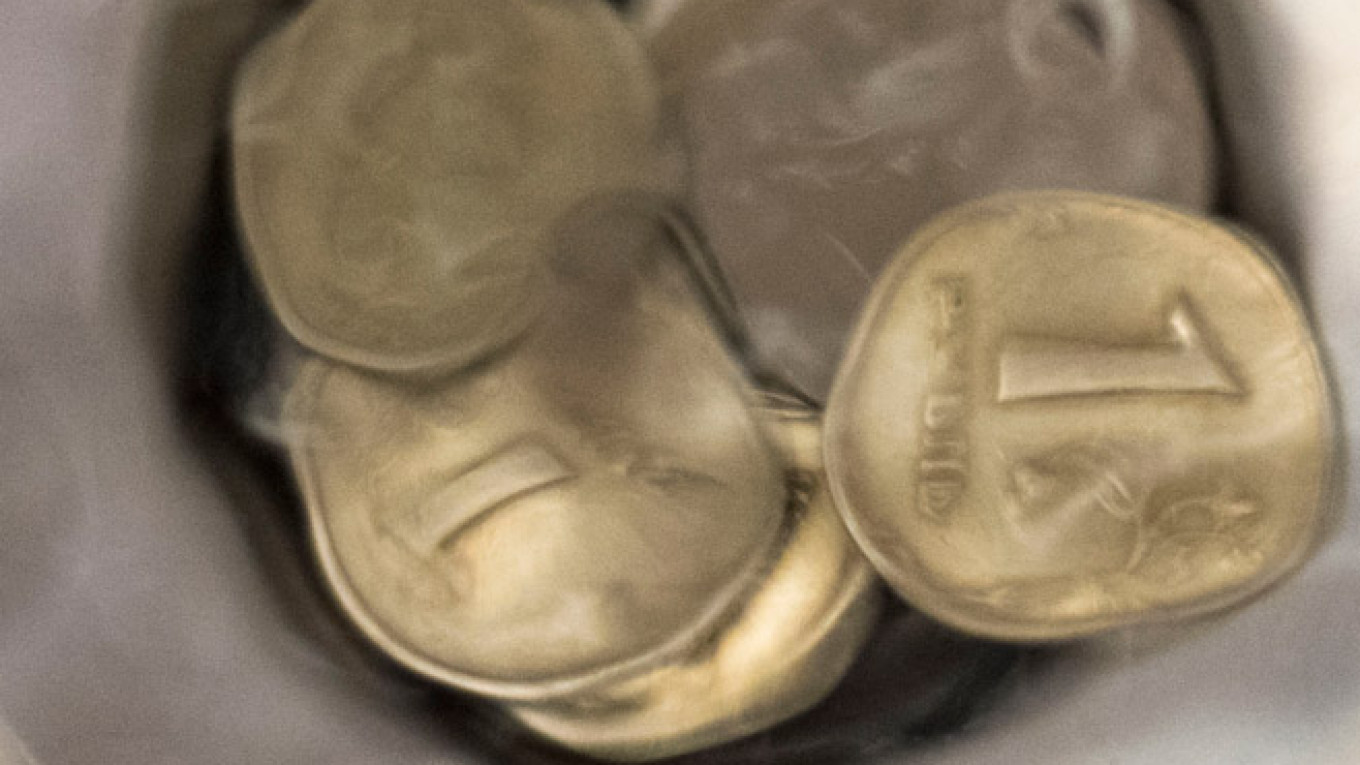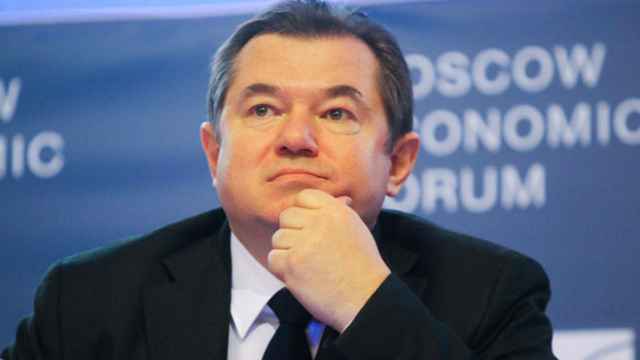Russia's currency dropped sharply Tuesday to new historic lows following a media report that the Central Bank was looking at the introduction of capital controls.
The ruble fell to 39.71 against the dollar, its lowest level since the currency was restructured in 1998, while the Central Bank's currency basket dropped to 44.36, a hair's breadth away from the point at which the regulator has said it will intervene on currency markets.
The sharp dive came after a report issued by Bloomberg news agency that quoted two unidentified officials saying that the Central Bank was discussing the implementation of restrictions on the free flow of money out of the country.
Russia abolished capital controls eight years ago in a landmark reform, but capital outflow has ballooned this year on the back of international tension over Ukraine and the imposition of Western sanctions on Moscow.
The Economic Development Ministry has said that capital outflows could reach as much as $120 billion this year, the highest level since the 2008 financial crisis and a sum equal to 6 percent of Russia's gross domestic product.
Kremlin adviser Sergei Glazyev suggested earlier this month that Russia should introduce a tax on the export of capital in a bid to stem the flood of money leaving the country.
"The mere mention of capital controls … affirms that the policy elite in Moscow is very nervous," Timothy Ash, head of emerging market research at Standard Bank, said in e-mailed comments to investors.
A Message from The Moscow Times:
Dear readers,
We are facing unprecedented challenges. Russia's Prosecutor General's Office has designated The Moscow Times as an "undesirable" organization, criminalizing our work and putting our staff at risk of prosecution. This follows our earlier unjust labeling as a "foreign agent."
These actions are direct attempts to silence independent journalism in Russia. The authorities claim our work "discredits the decisions of the Russian leadership." We see things differently: we strive to provide accurate, unbiased reporting on Russia.
We, the journalists of The Moscow Times, refuse to be silenced. But to continue our work, we need your help.
Your support, no matter how small, makes a world of difference. If you can, please support us monthly starting from just $2. It's quick to set up, and every contribution makes a significant impact.
By supporting The Moscow Times, you're defending open, independent journalism in the face of repression. Thank you for standing with us.
Remind me later.






